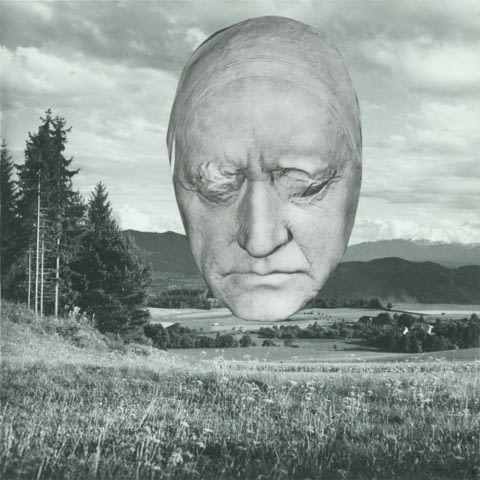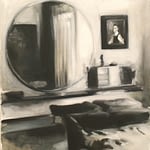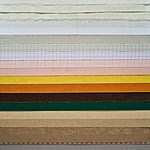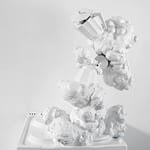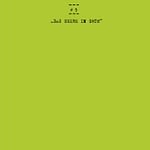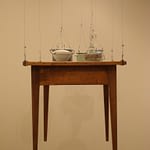Presentation and exhibition of the Instant Edition # 7 Nives Widauer – Deadlands
Opening on 08.10.2014 at 19:00h
The Basel-born artist Nives Widauer is of the opinion that artistic creation is always strongly influenced by the place where one is currently working. She says about her move to Vienna that she has always been interested in Vienna because you can find many relics from past times at flea markets, among other places: “At this point I suddenly understood that it’s not necessarily a matter of separating private life and the artist’s life from each other.
What particularly fascinates the artist about her work is to find connections that are not obvious at first glance: “Basically,” says Widauer, “it’s a bit of a research activity when you find out something about something you didn’t know exactly what you were holding in your hand. I just find it exciting that there are things that tell a story.”
Widauer comments on her way of working: “Basically, I am a collector – although there are already different ways of collecting. For example, I have a large archive of films that
I shot them myself, which I then usually work on with a certain delay. I collect pictures: I photograph – I collect impressions and I also read a lot. It’s like a puzzle where you put pieces together. A part of it is also “Found Footage” – found material, quasi offered by other people or nature.” The artist often leaves most of the material lying around for quite some time, but from time to time she looks at it again and again, lets it take effect. As soon as she has sharpened her eye for something, she notices a lot of things in her everyday life that fit the current theme – whether they are certain colors, objects, animals, texts, or works by other artists. “This matures and remains hidden in a kind of fog until I suddenly understand it in combination with something new and have an “aha-experience”, and then I know exactly how I want to use a material.
Regarding the “Deadlands” series, the artist says that a few years ago she bought a bundle of landscape photos – obviously from a trip through Europe in the 1930s or 1940s – from a probably semi-professional photographer at the Viennese flea market at the Naschmarkt. These photos were then taken for a very long time and actually only regained their consciousness through the event of her father’s death. “Like most people, I was in deep mourning after this experience. One of the first things that I took into my hands after his death was, when I was about to clean up his bookshelf, the book “Face of Death” by Egon Friedell, in which Friedell deals with death masks. I also moved my father at that time and experienced or observed the change of his dead face. Our human identity takes place to a large extent over our face. It is practically our distinguishing feature but also an emotional place of expression. But at the moment of death you give up control – so the face is what remains when you don’t control it anymore and that’s why I think the death mask is so interesting.”
Widauer then took Friedell’s book from Basel to Vienna and left it there for a year. She then learned more about life in Vienna about Egon Friedell’s life, and at some point it turned out that suddenly the photos of this strange trip to Europe came to rest next to Egon Friedell’s book. Then she knew immediately – the faces now come to these photos. “Because basically landscape photos, if they are now completely radicalized, are also a kind of death mask of the nature depicted. A death mask wants one thing above all else: to conserve a moment and nature never stands still, time never stands still,” says the artist.
In her opinion, the death mask has several levels. On the one hand there is a social level – “the fashion” people of importance to take off the death mask in order to put it on a higher level one last time. Furthermore, according to Widauer, the face of a person always has something of a landscape in which the story of a person can be read – as well as the landscape itself has a story. “This is why the idea came to me to mount a kind of landscape into another landscape, whereby I made the selection of the respective landscape purely intuitively and therefore there is no concrete reference to the person who took the respective death mask.
Text: Lucas Cuturi
Duration 08.10. – 26.10.2014
Project Space Lucas Cuturi, Neustiftgasse 107/5, 1070 Vienna, Austria
